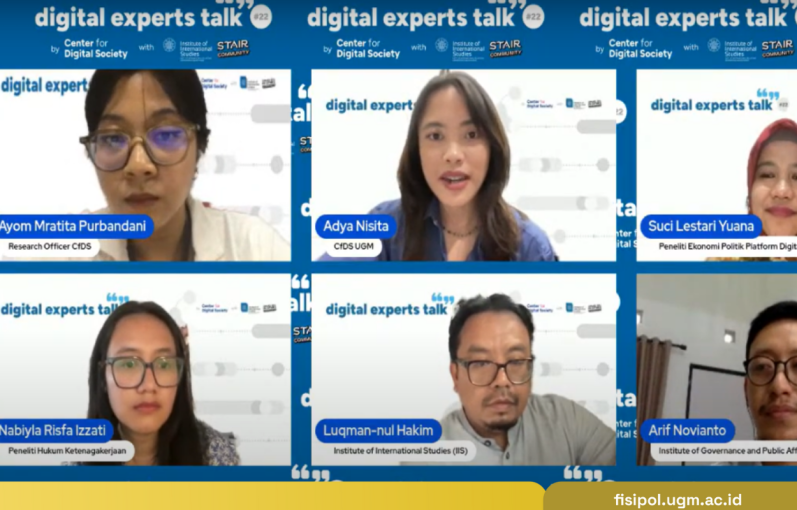
The discussion was opened with a critical question: “Who is the future of AI really for?” which reassessed the popular perspective that technology is neutral. “…if we look closer, however, technology is not something that is neutral in terms of politics. Technology is shaped by values, interests, and certain ideologies. As a result, it is important for us to finally criticize, uncover, and reimagine how AI can be fairer to those that are the most impacted by the AI wave, while having the least amount of say in the process,” Suci explained.Going from that, the new employment relationship was also created after the massive gig economy, especially with the presence of Artificial Intelligence (AI). In the era before this, especially in the era of industrial capitalism, employment relationships were formal, hierarchical in nature, and direct. This relation then developed and widened, which gave us rating, algorithm, and flexibility.
“In front of us, work conditions that are claimed as flexible, do not occur because there is a form of control or discipline, one of which is done through Artificial Intelligence,” Arif claimed.
Legally speaking, labor laws and regulations are seen as not adaptive enough in responding to the challenges of the gig economy in the digital transformation era, which causes the precariatization of gig workers. “Indonesian labor laws are considered to be oldies and traditional, which can be explained by the fact that it was created in the era in which gig workers are not as apparent as they are now. This is why the definition of employment relationship in Indonesia is strict,” Nabiyla explained.
The failure of the government to respond to the challenges of the ever-so complex AI-based gig economies will worsen the vulnerability of workers. Aim explained furthermore that the background of strong relations between capital and the state in Indonesia can weaken the discourse regarding the importance of social safety nets for workers as a main important indicator. Ayom then explained that the platform-based gig economy can technically be decided by non-human decisions that can work in a non-transparent black box, which will make it easier for exploitations to happen due to the asymmetries of information between the platform and workers.
